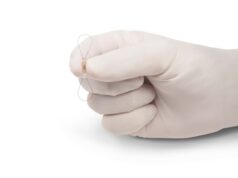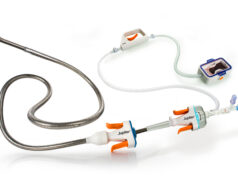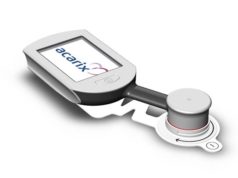 Enrolment has been completed in the US Food and Drug Administration (FDA)-approved early feasibility study (EFS) of the Elevate (Magenta Medical) percutaneous left ventricular assist device (pLVAD) for the high-risk percutaneous coronary intervention (HR-PCI) indication.
Enrolment has been completed in the US Food and Drug Administration (FDA)-approved early feasibility study (EFS) of the Elevate (Magenta Medical) percutaneous left ventricular assist device (pLVAD) for the high-risk percutaneous coronary intervention (HR-PCI) indication.
All 15 study patients were enrolled and successfully treated at Mount Sinai Hospital (New York, USA), St Francis Hospital and Heart Center (New York, USA), and North Shore University Hospital (New York, USA).
The Elevate EFS was approved by the FDA to evaluate the safety and feasibility of the Elevate system in providing temporary mechanical circulatory support during HR-PCI procedures, and constitutes the first step in a clinical programme intended to secure approval for the device in the USA for this indication.
Samin Sharma (Mount Sinai Health System, New York, USA), performed the first US procedure and was also the top enroller in this series.
“Having now used the system in nine complex, high-risk PCI cases, I can truly appreciate its advantages,” said Sharma. “As I see it, the three cardinal features of the Elevate pLVAD—small insertion profile, ease-of-use, and high pump flow—will enable us to benefit many more appropriately selected complex PCI patients, where current devices are limited. Elevate is advanced over the wire, fully crimped and covered. This makes it possible to navigate the device smoothly even through hostile vascular environments, which is very important, as atherosclerosis affects the entire arterial tree.”
Mechanical circulatory support is often necessary for high-risk patients with coronary artery disease undergoing a catheterisation procedure to open blockages in the arteries feeding the heart to improve quality of life and reduce the risk of heart attacks. Since the duration of support for this indication is typically short (up to six hours), with patients ambulatory soon following the procedure, it is particularly important to limit the insertion profile of the device in order to minimise vascular access complications.
Having secured FDA breakthrough device designation, Magenta Medical’s proprietary technology miniaturises a powerful blood pump to fit an 8Fr delivery system—which the company says is the smallest crimping profile of any such device.
The percutaneous heart pump is inserted over a guidewire through commercially available 10Fr introducer sheaths that require a small puncture in the groin. The flow of the pump is adjusted based on the clinical circumstances of the patient, with the ability to surpass 5L/min of mean flow.
The last patient in this series was treated by Rajiv Jauhar and Perwaiz M Meraj at North Shore University Hospital. The patient had severe generalised atherosclerosis with an abdominal aortic aneurysm, three-vessel coronary artery disease, and severely depressed left ventricular function.
Jauhar performed prolonged and extensive rotablation of a sub-totally occluded, heavily calcified LAD that provided collaterals to a totally occluded right coronary artery, followed by stenting, and intravascular ultrasound (IVUS)-guided lithotripsy.
Speaking about his experience, Jauhar said: “This was a very challenging case, and I strongly feel that without Elevate’s support, it would not have been possible to perform the procedure safely. This device is very easy to use, is delivered through a true 10Fr sheath, and provides terrific support. We were able to safely pass the aneurysm, quickly position the device, and perform extensive revascularisation, employing a variety of lesion-appropriate treatment modalities under full hemodynamic support, and all in under one hour.”
“Magenta is honoured to have partnered with top cardiology centres in the USA to further validate its technology and provide cardiologists with a powerful tool to support their high-risk patients during complex procedures,” said David Israeli, CEO of Magenta Medical. “We are thrilled to have completed enrolment so quickly, which speaks to both the clinical need and the wonderful enthusiasm and support of our clinical partners. The Magenta team is looking forward to offering the advantages of the Elevate system to a wide range of complex cardiac patients in our expanding clinical program towards eventual market approval.”
Elevate is an investigational device, limited by law to investigational use only. The technology received breakthrough device designation from the FDA for two indications: high-risk percutaneous coronary intervention and cardiogenic shock.











